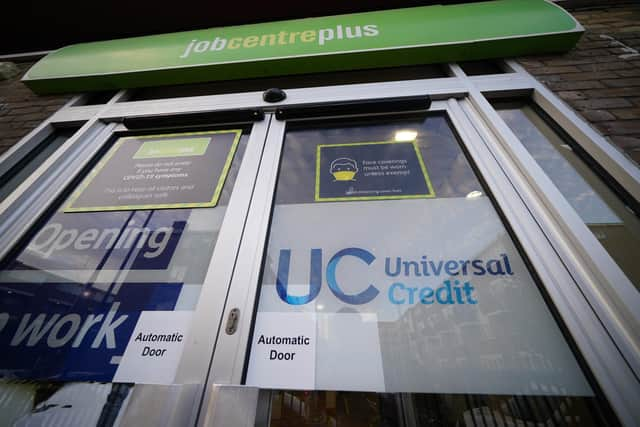More people on universal credit in West Lindsey
and live on Freeview channel 276
The figures come as a think tank calls for social security to be pegged to the cost of living.
Universal credit is a benefit available to those out of work, disabled or below a threshold of earnings and savings.
Advertisement
Hide AdAdvertisement
Hide AdCombined with a winding-up of older benefits and reduced employment opportunities, the number of people on UC rose dramatically over the coronavirus pandemic and has remained high since.


Department for Work and Pensions figures show 7,258 people on the benefit in West Lindsey as of March – an 8 per cent rise on 6,733 in March 2022.
Sam Tims, of the New Economics Foundation think tank, said “inadequate support”, low pay and insecure work was forcing people receiving benefits into difficult decisions.
In March, 42 per cent of UC recipients in the area were employed.
Advertisement
Hide AdAdvertisement
Hide AdAcross England and Wales, the number of households with a member on UC reached a record peak in February, at nearly 4.5 million, including 5,457 in West Lindsey.
Anna Stevenson, of anti-poverty charity Turn2Us, said “far too many households” are still struggling financially.
She said: “The Government needs to ensure support is there when people need it and it’s the right support to get through this crisis.
“The longer term, systemic answer, is to build an effective social security system in which people can thrive.”
Advertisement
Hide AdAdvertisement
Hide AdThe number of recipients in the area peaked in February, when 7,271 were receiving UC.
In England and Wales 112 local authorities hit their highest number of UC recipients in March, more than 30 per cent of all areas.